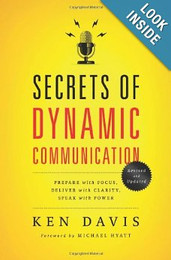The pager goes off. I stumble off the bed, grab my Motorola Startac, and call in to the phone center. An hour and a half later, I’m at the delivery entrance of a hospital in a non-descript blue van. I meet the technician, who helps me load up, and I’m about to head back to Arkadelphia. In the mirror at the morgue, I see my reflection.
My hair is out of whack, badly. My shirt is buttoned one-off, I’ve forgotten my belt, and my zipper is down. In short, I look more awful than normal. Why?
In the interest of sparing my roommate, I had gotten dressed to respond to the call in the dark. I had done as best I could without any light. I had then driven, in the dark of the early morning hours, without stopping to even think about how I looked. The morgue tech was apparently so used to people looking like death that he said nothing. Quickly, I ducked into the men’s room, straightened my appearance out, and headed down the road.
Light, you see, is a powerful tool. Light reveals the way things are. It may be the way things are in the world around us, or the way we are. Light reveals. Science teaches us that light also disinfects, and experience tells me that bugs and other icky things tend to prefer dark places. Light is wonderful.
Light allows us to walk in freedom as well. This is why open government policies are referred to as “Sunshine Laws.” They expose the deeds that occur in darkness, and most freedom-killing actions occur in the darkness. It is in the dark backrooms that conspiracies of governments and businesses occur; darkness covers the criminal; shadows cloak even the dark hero who rejects the laws. Freedom is crushed from the shadows, from the diners to the beer halls to the counsels of the evil one.
Freedom is crushed by others from the dark, but it is truly destroyed within us from our own darkness. We carry darkness in our own hearts that is hard to overcome, and that darkness oozes out from within to destroy our freedom to follow God. It keeps us bound to our sin, bound to our past, and blind to the Light of the World.
With that freedom shrouded in the darkness, light cannot be life-giving. In courses I don’t remember taking, in grades I know I was in for elementary school, I know we learned that our biological life gets all of its energy from the Sun. I remember reading how astounded scientists were to find life at deep-ocean vents that existed without light, surviving only based on heat. That biology discussion can come later, but suffice it to say that you and I have physical life only because of light.
That life is also maintained and improved by light. Ever walked through a forest so dense it was dark in the daytime? It can be terrifying—I’ve done it. You trip over so many things, you stumble, you crash, you get pains. I would rather spend twenty miles in open country than five in dense forest. It’s just not pleasant. Even worse would be living in a cave with no hope of coming out for an interminable period of time. (There is a documentary coming out soon about a group of Jews who did this to survive the Holocaust. I can’t find the link, but that looks worth seeing.)
Light, freedom, and life. These all tie together with the underlying principle of truth. Truth, from a Bible-centered view, is not a negotiable construct. It is something unchanging, something fundamental. This is something that our modern philosophy thinks can only be found in a few scientific principles and logic rules, like gravity and non-contradiction.
For the Christian, though, truth is known in a person. John 8 gives us the reality: truth is found in Jesus, and if we know Him we have the Truth. The Truth that brings life, the life that brings freedom, the life lived in the light.
This is the message of the Gospel of John: the Light of Christ is greater than the darkness of the world. The Light shines through Jesus. Through the signs of His miracles. Through the Cross. Through the Empty Tomb. This is what John wants us to see: Jesus.
What about our lives? In the midst of a failing nation, in the midst of chaos rising, are we focused on the light? It does not originate from Capitol Hill or the White House. It does not even originate from the church or the family. He is the Origin, and if we as His people are not seeing him as the ever-fixed mark that we follow, what good are we?
Not much good at all.
Light up the world by following the One who is Light, Life, Freedom, and Truth.
Today’s Nerd Note:
John 7:53-8:11. This is a great story. It is a marvelous example of grace and truth: no condemnation, but sin is to be abandoned. It also paints the older Pharisees in a better light.
It’s the only example we have of Jesus during the Incarnation writing. That does not mean He only does so here. Just that we only have this example.
I have preached this passage. I have taught this passage. I have used this passage to bridge tense situations in churches. I have based restoring people and rebuilding fellowship on these exact verses. I love this passage.
But if you have a modern Bible translation, it’s in italics or it’s in brackets or it’s not even there. Why? Because there are some major questions from the science of Biblical textual reconstruction about it. There are some very valid reasons why the experts in original Greek manuscripts would remove this passage.
I agree with Daniel Wallace’s major point that the emotional attachment to this passage is the reason it remains (See The Center for the Study of New Testament Manuscripts through iTunesU or other sources.) I am not quite certain where to go with the academic matters. I see the evidence that would place the passage more in the Synoptics, and in a vacuum would likely print Bibles with the passage definitely set aside as material possible, rather than material definite.
Yet we do not do Biblical study in a vacuum. Theology bears weight on the methods we bring to the text, even though the text itself informs theology. There is no theology in this, the pericopae adulterae that is divergent from the mainstream of theology in the rest of the life of Christ.
There is also the question of our theology of Bible transmission and preservation. In all, I know that the Greek nerd in me says to excise the passage. My favorite Early Church Father, Chrysostom, is one of many who skip straight from John 7:52 to John 8:12. (actually, everybody but Didymus the Blind do that, and Didymus doesn’t quote the story quite the same.)
But I’m vested here, emotionally, and wonder if we hurt ourselves theologically by claiming that the church had a faulty text for a thousand years and we finally fixed it. I’m uncertain, and I’m certainly uncommitted. If I were preaching through John, I would preach this passage and likely not fully address this unless someone asked.
 Plot-wise, Letters from Ruby does not move very quickly. This may drive a few readers to put the book down and come back later, but it presents a fairly good picture of pastoral life: Rev. Harper has a few days like I have had: wall-to-wall for 48 hours, then rather sleepy for weeks!
Plot-wise, Letters from Ruby does not move very quickly. This may drive a few readers to put the book down and come back later, but it presents a fairly good picture of pastoral life: Rev. Harper has a few days like I have had: wall-to-wall for 48 hours, then rather sleepy for weeks! 


 Some parents work naturally with their children in the kitchen. Others need a bit of help. Bake Through the Bible offers that little bit of help in a fun way.
Some parents work naturally with their children in the kitchen. Others need a bit of help. Bake Through the Bible offers that little bit of help in a fun way. 


